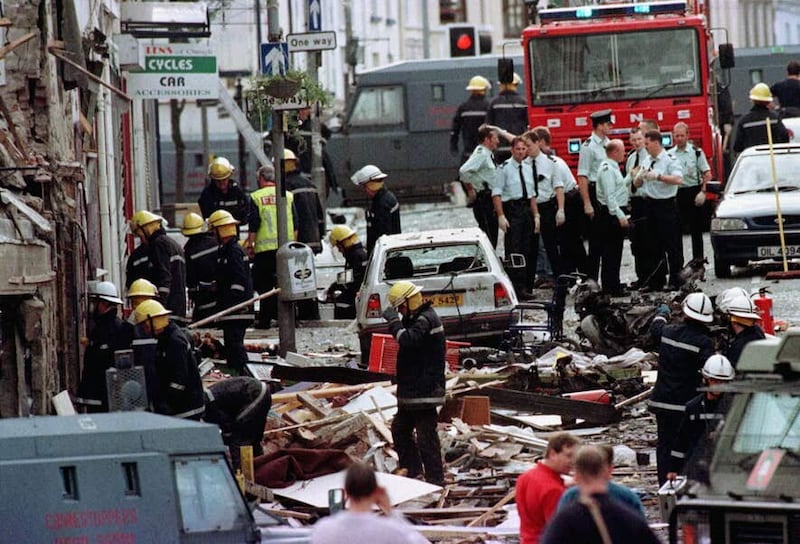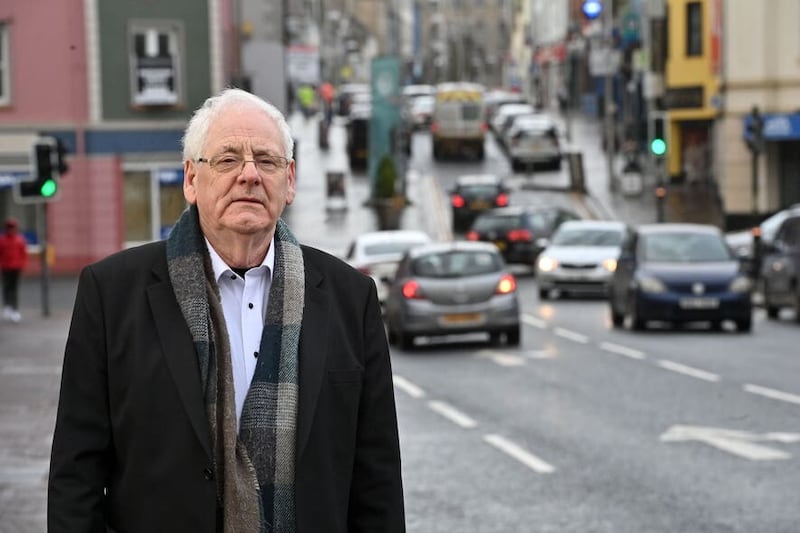Colm Murphy, found civilly liable for the Omagh bombing, once argued he should have been allowed to present an “insanity type defence” during a trial in the United States.
Murphy, who died earlier this week, claimed he suffered from “post traumatic stress disorder” due to “prolonged combat” in Northern Ireland and participation in hunger strikes, according to court records.
The 70-year-old was criminally convicted for involvement in the August 1998 bombing that killed 29 people, including a pregnant mother of twins. It was overturned on appeal and he acquitted following a second trial.

In a funeral notice, it was reported he died “peacefully” surrounded by “his loving family”. He will be buried in his native Belleeks in south Armagh on Friday.
Murphy, jailed twice in the 1970s, was arrested in New York in 1982 after attempting to buy 20 M-16 automatic rifles. It was a sting as the sellers were undercover FBI agents.
In his early 30s, Murphy claimed he was a representative of the Irish National Liberation Army (INLA).
Following his 1983 conviction, Murphy filed an appeal, citing various grounds, including not being allowed to claim the “insanity type defence” at his trial.
According to court documents seen by the Irish News, Murphy argued he was suffering from “post traumatic stress disorder (PTSD), a condition which used to be known as ‘shell shock’ or ‘battle fatigue’”.
“Murphy's disorder is said to be a result of the prolonged combat in Northern Ireland, including his participation in hunger strike,” the three judge US Court of Appeals in New York wrote.
In 1972, Murphy was sentenced in the Republic to two years in prison for possession of a firearm. He escaped from the Curragh later that year. He received a three year sentence in 1976 for firearms offences, also believed served in the south.
There is no record of him being involved in any hunger strike.
According to the US court documents, Murphy tried to introduce the “insanity” defence on the date his trial was due to begin in May, 1983.
It was “suggested by a doctor who stated that his ‘preliminary impression’ was that there was a ‘strong possibility’ that Murphy had PTSD and that this condition ‘may be’ causally related to the crimes allegedly committed”, that is the attempted purchase of firearms.
“The court's refusal to permit the additional delay was clearly correct,” the appeals court ruled.
In 2009, Murphy and three others, Seamus Daly, Michael McKevitt and Liam Campbell, were found civilly liable for the Omagh and ordered to pay £1.6m.
During bankruptcy proceedings, it was alleged in the Commercial Court in Dublin that asset transfers occurred when civil and criminal proceedings were pending against Murphy for his alleged role in the Omagh bombing carried out by the Real IRA. The case was settled in late January.
In February, the UK Government announced a public inquiry into the bombing.
John Fox, a solicitor representing 15 families of victims killed in the Omagh bombing, and approximately 100 injured, told the Irish Times it was disappointing Mr Murphy would now not be able to give evidence to the future inquiry.
“With the passage of time it becomes ever more difficult for the families to get to the truth of what happened in Omagh on the 15th August 1998,” he said.
Michael Gallagher, whose son Aiden died in the bombing, said he was "disappointed" Murphy did not "face justice" before leaving this life.

According to the death notice, Murphy died on Tuesday at Our Lady of Lourdes Hospital, Drogheda, "surrounded by his loving family". He was a father of four.
In a 2011 interview with the Irish News, Muprhy said the bombing was "awful" and "tragic", adding it "never should have happened".
Kenny Donaldson, of the victims' group, South East Fermanagh Foundation (SEFF) said: "Colm Murphy was a systemic terrorist who sadly was involved with subversive Irish Republican organisations for the greater part of his adult life, many homes are not the same due to his direct actions and/or via those of his associates."








